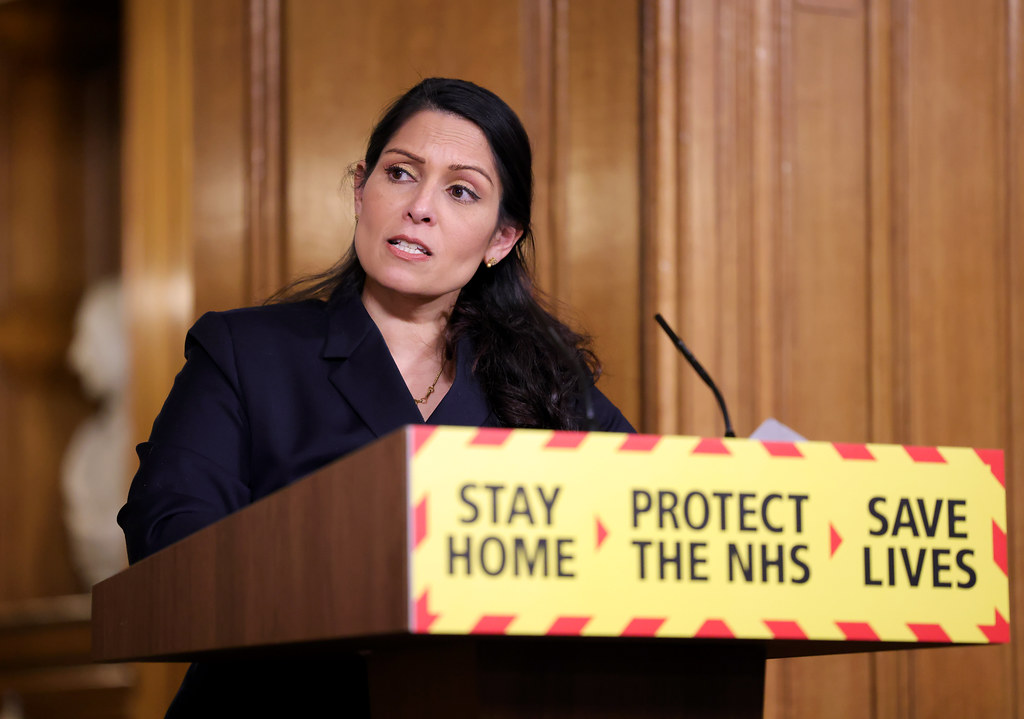Protect Duty is part of the government’s plan to keep the public safe from terrorism — but how will it work?

Protect Duty is part of the Government’s plan to improve the safety and security of public venues.
The proposals would make it a legal requirement for businesses and owners of public spaces to ensure preparedness for, and protection against, terrorist attacks.
Currently, there is no legislative requirement for a small venue to mitigate against terror threats.
The law would make it mandatory for public venues to “consider and mitigate against threats to security.”
Home secretary Priti Patel wants organisations to “put public safety and security first.”

Why is the Government implementing these changes?
Protect Duty is part of the government’s pledge to “keep the country safe from terrorism” in the wake of the Manchester Arena bombing in 2017.
It builds on the work of Figen Murray, the mother of Martyn Hett who died in the 2017 attack, and aims to implement Martyn’s Law.
Martyn’s Law — which would introduce airport-style checks to concert venues and sports stadiums — was backed by the Government early last year.

Who is backing the move?
Figen Murray thanked the government for taking the time to make Martyn’s Law a reality.
“Today is a major stride towards making our country safer from terror attacks. To make Martyn’s Law a reality is of huge relief and I look forward to making a lasting difference with all of those who have supported it.”
A spokesperson on behalf of the Counter Terrorism Policing Business Independent Advisory Group said it also welcomed the initiative.
“It is in the public interest for the government and business to work together to ensure people are as protected as possible when visiting venues, retail areas and other publicly accessible spaces. We look forward to collaborating with the Government.”
The consultation is also attracting support from across the Commons.
Labour’s Shadow Security Minister Nick Thomas-Symonds praised those who have campaigned for this change, but warned that reductions in police numbers might hamper counter-terrorism efforts.
Between March 2010 and March 2018, police numbers in England and Wales dropped by 15%, according to Home Office figures.
“A duty to protect is no substitute for professional policing. Combating the terrorists requires everything from community policing through to counter-terrorism”, he said.
Who will the changes apply to?
The new legislation would apply to any venues, organisations, businesses, local and public authorities, and/or individuals who own or operate a public venue with the capacity of 100 people or more.
The proposed changes would not apply to the rail, aviation or maritime sectors who already have legislative requirements in place to deal with terrorist threats.

What impact will this have on small businesses?
Under proposed plans, small businesses (e.g. retail outlets) would be required to provide assurances that the threat of terrorist activity has been adequately considered.
These assurances are likely to include:
· Regular risk assessments which are to be logged and recorded in which business owners show the range of threats which have been considered and the plans in place to mitigate against them.
· Regular staff training to spot signs of potential danger and carry out emergency procedures (much in the same way staff are trained to implement fire drills).
Enforcement of these new duties would be ensured by routine inspections with fines for non-compliance.
The Home Office argue this will drive forward an “improved culture of security” at minimal cost.
However, a spokesperson for the Federation of Small Businesses said: “We want to ensure the necessary support is there for any small firms wanting to do events who may fall under this umbrella, cost will be the number one issue for this.”
There would be no expectation for small businesses to invest in specific physical security measures, but it would be expected that existing measures (such as roller shutters) would be included in emergency plans.

What does this mean for larger venues?
Larger venues tend to already have comprehensive counter-terrorism strategies in place — the Protect Duty would most likely involve a reinforcement of these measures.
Larger venues (theme parks for instance) will be expected implement more rigorous risk assessments which might involve collaborating with local authorities and police forces.
Will it work?
Funding will be a key issue.
Security expert Niall Griffin, writing for HS Security, said:
“After a disastrous 14 months for the event industry following the global pandemic, there has already been a detrimental impact on the economic prosperity of event companies. Because of this, event organisers might struggle to fund additional, mandated security measures, and to pass the cost onto event-goers may not be viable.”
He said that while the Protect Duty was a “huge step in the right direction”, but warned that any changes must be “proportionate”.
The government is hoping that these additional charges will be offset by the “wider benefits of a perceived reduction in risk”, such as increased visitors and revenue.

Another worry is that of displacement, in which increased security at one location might encourage an attacker to target a different, lesser fortified location, which might not fall under the Protect Duty — for instance, targeting a queue of people waiting to get into an event rather than the event itself.
However, Security Minister James Brokenshire stressed that the Protect Duty was just “one part of the Governments approach” to counter-terrorism.
What happens next?
The Home Office are inviting organisations and business leaders to advise the government on the proposed changes.
The 18-week consultation will last until 2 July 2021.

